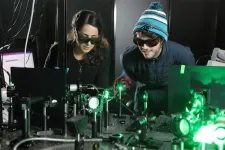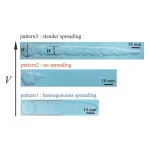“To address residual cardiovascular risk in patients, our research program aims to bolster our mechanistic understanding of how psychosocial stress impacts the immune system and inflammatory atherosclerosis,” says Principal Investigator Zahi Fayad, PhD, Director of the Biomedical Engineering and Imaging Institute and Lucy G. Moses Professor in Medical Imaging and Bioengineering at Icahn Mount Sinai. “We are delighted that NHLBI has validated the potential of our work by enabling this program through the renewal of this grant.”
Existing cardiovascular risk management strategies lack sufficient evidence-based interventions to tackle the adverse effects of psychological stress. Given the escalating burden of atherosclerotic heart disease, the investigators emphasize the urgent need to modulate the impact of stress.
Dr. Fayad reported on developments to come out of the initial five-year grant: “We significantly advanced knowledge on psychosocial stress and cardiovascular disease by identifying connections between the nervous, immune, and vascular systems. Our findings showed that stress perception mechanisms influence atherosclerosis development and regression. And we developed sophisticated tools to study brain regions involved in stress perception and made substantial progress in translational imaging studies to measure stress-associated neurobiology as it relates to cardiovascular disease. Additionally, our clinical studies are shedding light on the neuro-immune-arterial pathway. Collaboratively, we have generated innovative research questions we’re now eager to explore.”
Dr. Fayad will lead a multidisciplinary team from Icahn Mount Sinai, Massachusetts General Hospital (MGH), New York University (NYU), and Radboud University Medical Center (Radboudumc)
in the Netherlands to complete the interrelated experiments. The team includes Filip Swirski, PhD, Scott Russo, PhD, Philip Robson, PhD, Li Shen, PhD, Abraham Teunissen, PhD, MSc, BASc, Maria Giovanna Trivieri, MD, PhD, and Mandy van Leent, MD, PhD, from Icahn Mount Sinai; Willem Mulder, PhD, and Niels Riksen, MD, from Radboudumc; Edward Fisher, MD, PhD, MPH, from NYU; and Ahmed Tawakol, MD, Matthias Nahrendorf, MD, PhD, and Lisa Shin, PhD, from MGH.
Building on the previous five-year grant, the research team plans to broaden their perspective to better understand immune reprogramming in psychosocial stress-aggravated atherosclerotic disease. The work will involve:
Evaluating various brain circuits Utilizing diverse imaging methods Conducting in-depth analyses (omics) for optimal integration and harmonization of data “This research has the potential to not only advance our scientific understanding of neural control of immune mechanisms that drive cardiovascular diseases, but also could offer approaches to managing such diseases in individuals experiencing prolonged psychosocial stress, including identifying novel therapeutic targets, treatments and preventive measures,” says Eric J. Nestler, MD, PhD, Nash Family Professor of Neuroscience, Director of The Friedman Brain Institute, and Dean for Academic Affairs at Icahn Mount Sinai, and Chief Scientific Officer of the Mount Sinai Health System.
The work is being supported by the National Heart, Lung, and Blood Institute (grant number P01HL131478).
-####-
The BioMedical Engineering and Imaging Institute is a state-of-the-art research facility housed in 20,000 square feet in the Hess Center for Science and Medicine on Mount Sinai’s Upper East Side campus. BMEII comprises more than 60 faculty, staff, and trainees with expertise in all aspects of translational imaging research. The faculty consists of chemical, biomedical, and electrical engineers; radiologists; cardiologists; immunologists; and data scientists, who are leading experts in neuroimaging, cardiovascular imaging, body/cancer imaging, and nanomedicine.
About the Icahn School of Medicine at Mount Sinai
The Icahn School of Medicine at Mount Sinai is internationally renowned for its outstanding research, educational, and clinical care programs. It is the sole academic partner for the eight- member hospitals* of the Mount Sinai Health System, one of the largest academic health systems in the United States, providing care to a large and diverse patient population.
Ranked 14th nationwide in National Institutes of Health (NIH) funding and among the 99th percentile in research dollars per investigator according to the Association of American Medical Colleges, Icahn Mount Sinai has a talented, productive, and successful faculty. More than 3,000 full-time scientists, educators, and clinicians work within and across 44 academic departments and 36 multidisciplinary institutes, a structure that facilitates tremendous collaboration and synergy. Our emphasis on translational research and therapeutics is evident in such diverse areas as genomics/big data, virology, neuroscience, cardiology, geriatrics, as well as gastrointestinal and liver diseases.
Icahn Mount Sinai offers highly competitive MD, PhD, and Master’s degree programs, with current enrollment of approximately 1,300 students. It has the largest graduate medical education program in the country, with more than 2,000 clinical residents and fellows training throughout the Health System. In addition, more than 550 postdoctoral research fellows are in training within the Health System.
A culture of innovation and discovery permeates every Icahn Mount Sinai program. Mount Sinai’s technology transfer office, one of the largest in the country, partners with faculty and trainees to pursue optimal commercialization of intellectual property to ensure that Mount Sinai discoveries and innovations translate into healthcare products and services that benefit the public.
Icahn Mount Sinai’s commitment to breakthrough science and clinical care is enhanced by academic affiliations that supplement and complement the School’s programs.
Through the Mount Sinai Innovation Partners (MSIP), the Health System facilitates the real-world application and commercialization of medical breakthroughs made at Mount Sinai. Additionally, MSIP develops research partnerships with industry leaders such as Merck & Co., AstraZeneca, Novo Nordisk, and others.
The Icahn School of Medicine at Mount Sinai is located in New York City on the border between the Upper East Side and East Harlem, and classroom teaching takes place on a campus facing Central Park. Icahn Mount Sinai’s location offers many opportunities to interact with and care for diverse communities. Learning extends well beyond the borders of our physical campus, to the eight hospitals of the Mount Sinai Health System, our academic affiliates, and globally.
-------------------------------------------------------
* Mount Sinai Health System member hospitals: The Mount Sinai Hospital; Mount Sinai Beth Israel; Mount Sinai Brooklyn; Mount Sinai Morningside; Mount Sinai Queens; Mount Sinai South Nassau; Mount Sinai West; and New York Eye and Ear Infirmary of Mount Sinai.
END


